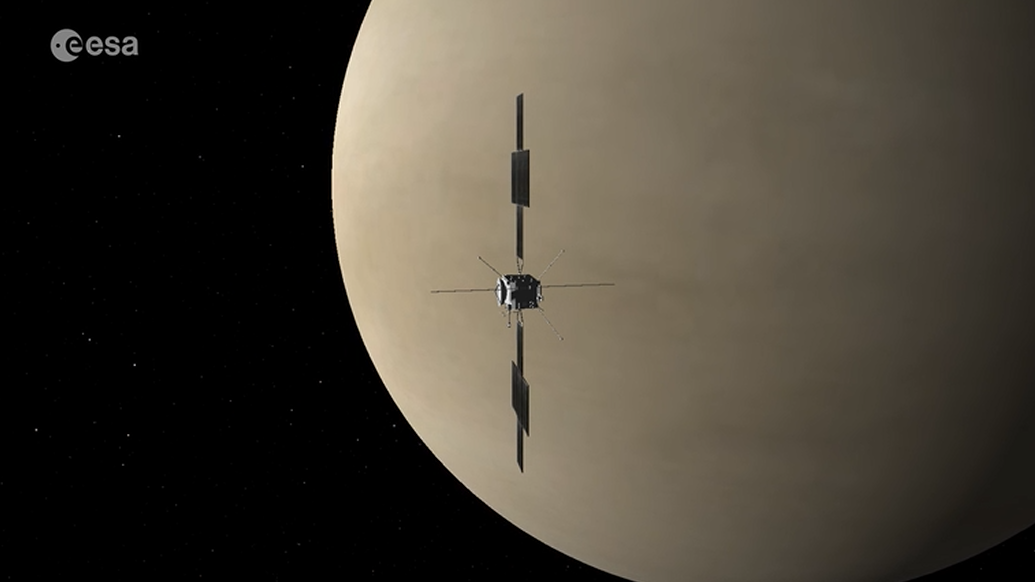Early on the morning of August 31, 2023, the European Space Agency’s (ESA) JUICE spacecraft completed a flyby of Venus as part of its journey to explore Jupiter’s largest moons. The mission, named JUICE, stands for “Jupiter Icy Moons Explorer,” and is designed to gather significant data about Jupiter and its three prominent moons: Ganymede, Callisto, and Europa. These moons are of particular interest to scientists because they are believed to contain subsurface oceans beneath their icy surfaces, raising the possibility of extraterrestrial life.
While the flyby of Venus is an essential part of JUICE’s trajectory, it may seem counterintuitive for a spacecraft heading to Jupiter. This route is necessary because JUICE employs a gravity-assist maneuver, also known as a slingshot, to efficiently reach its destination. The spacecraft has already performed maneuvers around the Moon and Earth, gaining speed without expending fuel.
During the flyby, JUICE’s operators faced a challenge as they had to turn off the spacecraft’s sensors due to the intense heat of Venus’s atmosphere. Consequently, no images were captured during the close encounter, which peaked with a scheduled closest approach at 1:28 a.m. EST (0528 GMT). In a statement released on August 25, ESA noted that JUICE utilized its main high-gain antenna as a “thermal shield” during the flyby, indicating the spacecraft’s preparedness for the extreme conditions.
Next Steps for JUICE on Its Journey
Following the Venus flyby, JUICE’s next destination is another gravity-assisted maneuver around Earth, scheduled for 2026. This will further refine its trajectory, allowing the spacecraft to gain additional speed relative to the planet. ESA confirmed that JUICE will make one more orbit around the Sun before returning to Earth for a final time in January 2029. Only after this will the spacecraft be positioned to enter orbit around Jupiter, a milestone expected in July 2031.
The nearly 13,300-pound (6,000-kilogram) probe is equipped with advanced instruments intended for in-depth studies of the Jovian system. The mission aims to provide crucial insights into the composition and dynamics of the three moons, especially Europa, which is considered one of the prime candidates in the search for life beyond Earth.
JUICE’s journey is a testament to international cooperation in space exploration, as it represents significant advancements in technology and understanding of our solar system. As the mission progresses, the scientific community eagerly anticipates the wealth of data that JUICE will deliver, potentially reshaping our understanding of the cosmos and the conditions for life within it.








































































